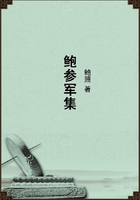If this explanation of the totem as a receptacle in which a man keeps his soul or one of his souls is correct, we should expect to find some totemic people of whom it is expressly said that every man amongst them is believed to keep at least one soul permanently out of his body, and that the destruction of this external soul is supposed to entail the death of its owner. Such a people are the Bataks of Sumatra. The Bataks are divided into exogamous clans (margas) with descent in the male line; and each clan is forbidden to eat the flesh of a particular animal. One clan may not eat the tiger, another the ape, another the crocodile, another the dog, another the cat, another the dove, another the white buffalo, and another the locust. The reason given by members of a clan for abstaining from the flesh of the particular animal is either that they are descended from animals of that species, and that their souls after death may transmigrate into the animals, or that they or their forefathers have been under certain obligations to the creatures. Sometimes, but not always, the clan bears the name of the animal. Thus the Bataks have totemism in full. But, further, each Batak believes that he has seven or, on a more moderate computation, three souls. One of these souls is always outside the body, but nevertheless whenever it dies, however far away it may be at the time, that same moment the man dies also. The writer who mentions this belief says nothing about the Batak totems; but on the analogy of the Australian, Central American, and African evidence we may conjecture that the external soul, whose death entails the death of the man, is housed in the totemic animal or plant.
Against this view it can hardly be thought to militate that the Batak does not in set terms affirm his external soul to be in his totem, but alleges other grounds for respecting the sacred animal or plant of his clan. For if a savage seriously believes that his life is bound up with an external object, it is in the last degree unlikely that he will let any stranger into the secret. In all that touches his inmost life and beliefs the savage is exceedingly suspicious and reserved; Europeans have resided among savages for years without discovering some of their capital articles of faith, and in the end the discovery has often been the result of accident. Above all, the savage lives in an intense and perpetual dread of assassination by sorcery; the most trifling relics of his personthe clippings of his hair and nails, his spittle, the remnants of his food, his very nameall these may, he fancies, be turned by the sorcerer to his destruction, and he is therefore anxiously careful to conceal or destroy them. But if in matters such as these, which are but the outposts and outworks of his life, he is so shy and secretive, how close must be the concealment, how impenetrable the reserve in which he enshrouds the inner keep and citadel of his being! When the princess in the fairy tale asks the giant where he keeps his soul, he often gives false or evasive answers, and it is only after much coaxing and wheedling that the secret is at last wrung from him. In his jealous reticence the giant resembles the timid and furtive savage; but whereas the exigencies of the story demand that the giant should at last reveal his secret, no such obligation is laid on the savage; and no inducement that can be offered is likely to tempt him to imperil his soul by revealing its hiding-place to a stranger. It is therefore no matter for surprise that the central mystery of the savage's life should so long have remained a secret, and that we should be left to piece it together from scattered hints and fragments and from the recollections of it which linger in fairy tales.
4. The Ritual of Death and Resurrection
THIS view of totemism throws light on a class of religious rites of which no adequate explanation, so far as I am aware, has yet been offered. Amongst many savage tribes, especially such as are known to practice totemism, it is customary for lads at puberty to undergo certain initiatory rites, of which one of the commonest is a pretence of killing the lad and bringing him to life again. Such rites become intelligible if we suppose that their substance consists in extracting the youth's soul in order to transfer it to his totem.
For the extraction of his soul would naturally be supposed to kill the youth or at least to throw him into a death-like trance, which the savage hardly distinguishes from death. His recovery would then be attributed either to the gradual recovery of his system from the violent shock which it had received, or, more probably, to the infusion into him of fresh life drawn from the totem. Thus the essence of these initiatory rites, so far as they consist in a simulation of death and resurrection, would be an exchange of life or souls between the man and his totem. The primitive belief in the possibility of such an exchange of souls comes clearly out in a story of a Basque hunter who affirmed that he had been killed by a bear, but that the bear had, after killing him, breathed its own soul into him, so that the bear's body was now dead, but he himself was a bear, being animated by the bear's soul. This revival of the dead hunter as a bear is exactly analogous to what, on the theory here suggested, is supposed to take place in the ceremony of killing a lad at puberty and bringing him to life again. The lad dies as a man and comes to life again as an animal; the animal's soul is now in him, and his human soul is in the animal. With good right, therefore, does he call himself a Bear or a Wolf, etc., according to his totem; and with good right does he treat the bears or the wolves, etc., as his brethren, since in these animals are lodged the souls of himself and his kindred.















